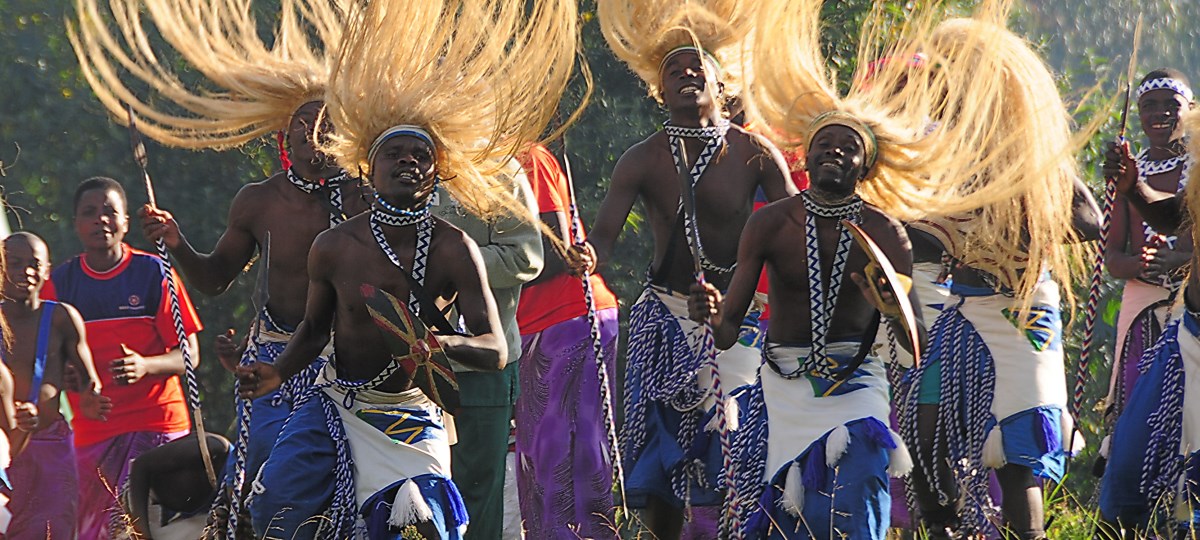Travel Tips - Rwanda
Time Zone
The time zone in Rwanda is GMT +2 hours throughout the year.
Langauge
Kinyarwanda is the official language in Rwanda, although French and English are widely spoken and understood.
Currency
The unit of currency is the Rwanda franc. The US dollar is the hard currency of preference.
Money Matters
We urge you to try to spend all of your Francs while you are in Rwanda because the reverse exchange rate from Francs is very unfavorable. Be aware that only paper currency will normally be accepted for exchange. Very few places in Rwanda accept credit cards. Only the major hotels in Kigali plus a few airlines accept them. There are money-changing facilities in Kigali, which we recommend you use, as it is more difficult to change money while on safari. Visitors are advised that if they are carrying US Dollar cash with them, the notes should be no smaller than $100 denomination, and should have been issued no earlier than 2000. We recommend that you carry cash for convenience and security, and that you change about US$200-300 of this into Rwanda francs at the start of your tour. Cash is more easily exchanged in Rwanda, as many facilities are very reluctant to accept payment by traveler’s cheque.
Weather
Best time to go to Rwanda
A combination of tropical location and high altitude ensures that most of Rwanda has a temperate year-round climate. Temperatures rarely stray above 30 degrees Celsius by day or below 15 degrees Celsius at night, throughout the year. The exceptions are the chilly upper slopes of the Virunga Mountains, throughout the country, seasonal variations in temperature are relatively insignificant. Most parts of the country receive in excess of 1,000 mm of precipitation annually, with the driest months being July to September and the wettest February to May.
Clothing
Casual and comfortable clothing is most useful. It is certainly not necessary to bring a separate change of clothing for each day and evening, and it is recommended that you keep luggage to a minimum for your own comfort and ease of transport, especially if you are using light aircraft transfers.
If gorilla tracking or chimpanzee tracking, something sturdy is recommended to protect against scratches, and a good pair of walking boots, and ideally a good pair of protective leather gloves should also be worn.
Health
A yellow fever vaccination is required for all travelers over one year old.
Malaria is prevalent in certain parts of Rwanda, and all visitors should consult their doctor and take the currently effective prophylactic prescribed. In addition, other personal protective measures, such as the use of insect repellent, covering arms and legs after dusk and avoiding the use of scented products can help to reduce the risk of malaria.
It is suggested that you bring a smaller traveler’s kit with remedies for minor stomach ailments or motion sickness. You should include an adequate supply (in your hand luggage) of any prescribed medication you may require while traveling.
We do recommend that you take out comprehensive travel insurance to cover you in the event of a medical emergency.
Photography
The choice of camera accessories is very limited, although most types of film is now available in Kigali. Flash photography is not allowed while gorilla tracking, and clients should bring their own high-speed film to compensate for this. Clients should also bring a sufficient supply of batteries, as recharging is sometimes impossible on safari. Local people should be asked before their photograph is taken. Photographing military installations, government buildings and policemen is prohibited.
Electricity
The electricity supply in Rwanda is 230-240 volts and visitors should bring electrical appliance adapters with them where necessary.
Please note that all electrical wall outlets in Rwanda are two-pin, so visitors should bring a two-pin to three-pin adapter with them.
Arrival and Departure Formalities
All visitors, except nationals of a few exempted countries, require a Visa to enter Rwanda. Citizens of the following countries enjoy visa FREE entry into Rwanda for a period of 90 days: Benin, Central African Republic, Chad, Ghana, Guinea, Indonesia, Haiti, Senegal, Seychelles, Sao Tomoe, Principe, Democratic Republic of Congo, East African Member Community Partner States, Mauritius, Philippines and Singapore.
Citizens of all other countries can get visa upon arrival at the port of entry. The entry visa fee is valid for a period of up to 30 days. Citizens of COMESA member states can get a 90 day visa on arrival on payment of the prescribed fee.
The Government of Rwanda has waived visa for holders of Diplomatic and Service Passports from the following countries: Djibouti, Ethiopia, Gabon, Guinea, India, Israel, Morocco and Turkey.
The East Africa Tourist Visa allows entry to Rwanda, Uganda and Kenya. Applications should be made in advance with the country to be entered first. For Rwanda, applications can be made with the Directorate General of Immigration and Emigration or at any Rwandan Embassy or Diplomatic Mission, or online. Once an online application is approved, the visa can be collected upon arrival at Kigali International Airport. Cost is US$100 and validity is 90 days.


